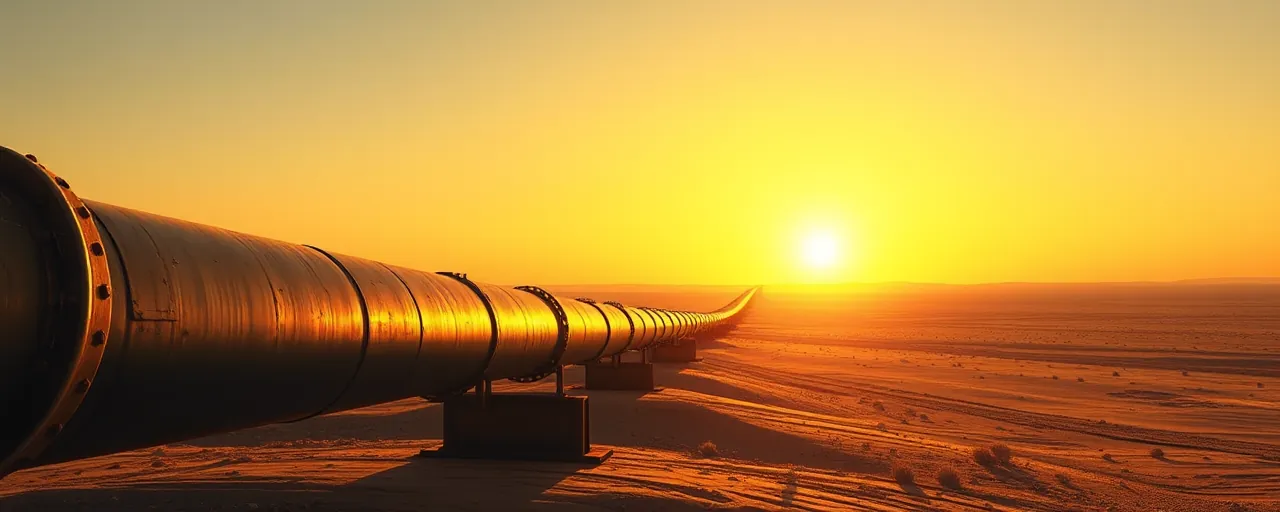A Bold Step for American Interests
The call to reopen the Iraq-Türkiye Pipeline isn’t just about oil; it’s about securing America’s stake in a volatile region. When Secretary of State Marco Rubio pressed Iraqi Kurdistan’s Prime Minister Masrour Barzani on this issue, he wasn’t mincing words. The pipeline, shuttered since March 2023, is a lifeline for U.S. investments and a bulwark against Iran’s creeping influence. Letting it stay closed risks billions in losses and hands Tehran a free pass to tighten its grip on Iraq’s economy. This isn’t a hypothetical; it’s a reality we can’t afford to ignore.
Rubio’s push reflects a clear-eyed view of what’s at stake. The United States has poured decades into stabilizing Iraq, from toppling Saddam to crushing ISIS. Now, with the pipeline stalled, we’re at a crossroads. Reopening it signals to the world that America backs its allies, protects its economic interests, and stands firm against adversaries. Anything less would betray the sacrifices made and embolden those who thrive on our hesitation.
Energy as a Weapon Against Chaos
The Iraq-Türkiye Pipeline isn’t just a conduit for crude; it’s a tool for stability. Since its closure, the Kurdish region has hemorrhaged an estimated $23 billion, crippling local economies and shaking investor confidence. U.S. energy firms, which bet big on northern Iraq’s oil fields, are left twisting in the wind. Restarting the flow would pump life back into these markets, create jobs, and signal to global investors that Iraq is open for business. That’s the kind of prosperity that drowns out extremist voices and keeps ISIS at bay.
Contrast this with the alternative. Some argue we should let Iraq sort out its own mess, claiming U.S. involvement only stirs the pot. But stepping back now would cede ground to Iran, whose proxies already meddle in Iraq’s politics and militias. The pipeline’s reopening cuts into Tehran’s leverage by giving Iraq and Kurdistan the cash to stand on their own. Energy independence isn’t just economic; it’s a firewall against foreign manipulation.
Democracy Needs a Strong Foundation
Rubio’s talk with Barzani didn’t stop at oil. He doubled down on strengthening democracy in Iraqi Kurdistan, and for good reason. The region’s elections, like the one in October 2024, show a commitment to self-governance, but they’re not perfect. Dominant parties and their militias cast long shadows, and public frustration is real. U.S. support, tied to economic growth through projects like the pipeline, can help break this cycle. A prosperous Kurdistan is one where voters demand accountability, not just loyalty to old power blocs.
Skeptics might claim democracy can’t take root in such rocky soil. They point to fraud allegations or tribal politics as proof it’s a lost cause. Yet history shows otherwise. From post-war Germany to Eastern Europe after the Cold War, economic stability has always paved the way for stronger institutions. Kurdistan’s no different. By backing the pipeline and broader trade, America can give Kurds the tools to build a system that answers to them, not warlords or foreign powers.
A Regional Power Play
The pipeline’s importance stretches beyond Iraq’s borders. Türkiye, a key NATO ally, sees it as part of a broader strategy to link Asia and Europe through projects like the $17 billion Development Road. This isn’t just infrastructure; it’s a counterweight to Iran’s regional ambitions. With Iraq and Türkiye deepening ties on trade and security, the U.S. has a chance to anchor a bloc that values stability over chaos. The PKK’s fragile ceasefire with Türkiye only sweetens the deal, easing tensions that could derail progress.
Sealing the Deal
The case for action is airtight. Reopening the Iraq-Türkiye Pipeline protects U.S. investments, fuels Kurdish prosperity, and bolsters a region desperate for stability. It’s not about charity; it’s about advancing American interests while giving Iraqis a shot at self-reliance. The longer we wait, the more we risk losing ground to Iran and others who don’t share our vision for a free, secure Middle East.
Rubio’s call to Barzani wasn’t just diplomacy; it was a rallying cry. America has the leverage to make this happen, from pressuring Baghdad to resolve pricing disputes to rallying international support. We’ve seen what indecision costs: billions lost, allies weakened, adversaries emboldened. It’s time to act, not waffle. The pipeline’s flow can light the way to a stronger Iraq and a prouder America.
